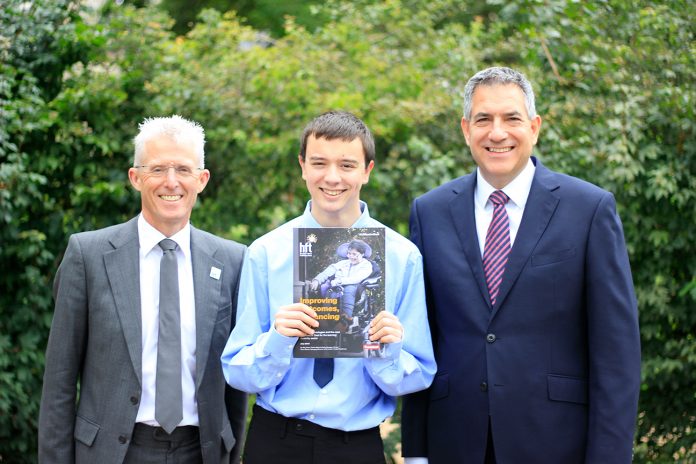A new report was launched in Parliament this month advocating for a deal in the learning disability sector, on the potential of technology to boost investment and transform the way care is delivered
National learning disabilities charity, Hft, supported by Tunstall Healthcare, produced the paper outlining the key arguments for an economic partnership with the government as part of the UK Industrial Strategy – a long term plan for the future aimed at backing businesses to drive productivity through investment in skills, industries and infrastructure.
The report, which was officially launched at the House of Lords, highlights the challenges faced by a social care sector in financial crisis at a time when demand is growing. Hft and Tunstall believe the successful negotiation of a learning disability sector deal would enable effective investment that could unlock the potential of assistive technologies.
In turn, this would stimulate innovation and investment in future services, bring financial sustainability to providers within the sector, and ultimately deliver enhanced outcomes for people with learning disabilities.
To mark the launch of the paper, more than 100 guests, including MPs, Peers and civil servants, as well as social care providers and telecare organisations, attended a reception on Monday 15th July in the Cholmondeley Room, hosted by Hft Chair of Trustees and Liberal Democrat Health and Social Care Spokesperson, Baroness Jolly. Hft Chief Executive, Robert Longley-Cook, presented the need for a sector deal, and Managing Director of Tunstall, Gavin Bashar, highlighted the benefits of including technology in services. William, a person supported by Hft, also spoke about the positive difference that assistive technologies have made to the support that he receives.
William, 22, from Bedfordshire shared his personal experience of how technology helped him to achieve his dream of living independently in the community. He uses a key fob to enter his home, which can be deactivated and replaced if lost, and has a lifeline phone and pendant alarm to use to call for help in the event of an emergency.
William, who has autism, said:
“I feel safe and secure knowing I am only one button away from calling anyone at any time.”
The event also marked the official launch of Hft’s new Virtual Smarthouse. The online house showcases examples of assistive technology which different vulnerable groups can use around their home to improve their independence and quality of life and increase their safety.
On the day, attendees were invited to pledge their support for the sector deal and had the opportunity to be involved in shaping what that would look like.
Robert Longley-Cook, Hft’s Chief Executive, said investment in the sector is desperately needed.
“As it stands, the learning disability sector accounts for around a third of adult social care spend in England and demand is growing rapidly as life expectancy increases. Despite increased demand, local authority expenditure has not kept up, leading to an anticipated funding gap of £5 billion by 2020.
“With the funding crisis affecting the sustainability of adult social care, the sector and the government must come together to successfully negotiate a learning disability Sector Deal.
“Assistive technology has a key part to play in bridging that gap. Effective investment could transform the way support is delivered to people with learning disabilities and increase their independence, ultimately freeing up staff to focus on more meaningful support.
“We believe a Sector Deal will stimulate investment and innovation and ultimately deliver improved outcomes for the people supported by the sector.”
Gavin Bashar, UK & Ireland Managing Director of Tunstall Healthcare commented:
“We support millions of people around the world, using technology as part of person-centred services to enable independence and freedom.
“However, not enough people with learning disabilities are currently benefitting from the advantages that assistive technology (also known as telecare) can bring.
“Assistive technology can make a positive difference to people with all kinds of disabilities, and in a variety of living environments. As well as managing risks, technology can aid communication, deliver greater privacy and dignity, and give people more control over the way they live their lives.
“Tunstall is proud to support the Sector Deal proposal, and its aim of delivering wide-ranging economic benefits and progressing towards a better future for people with learning disabilities in the UK.”











